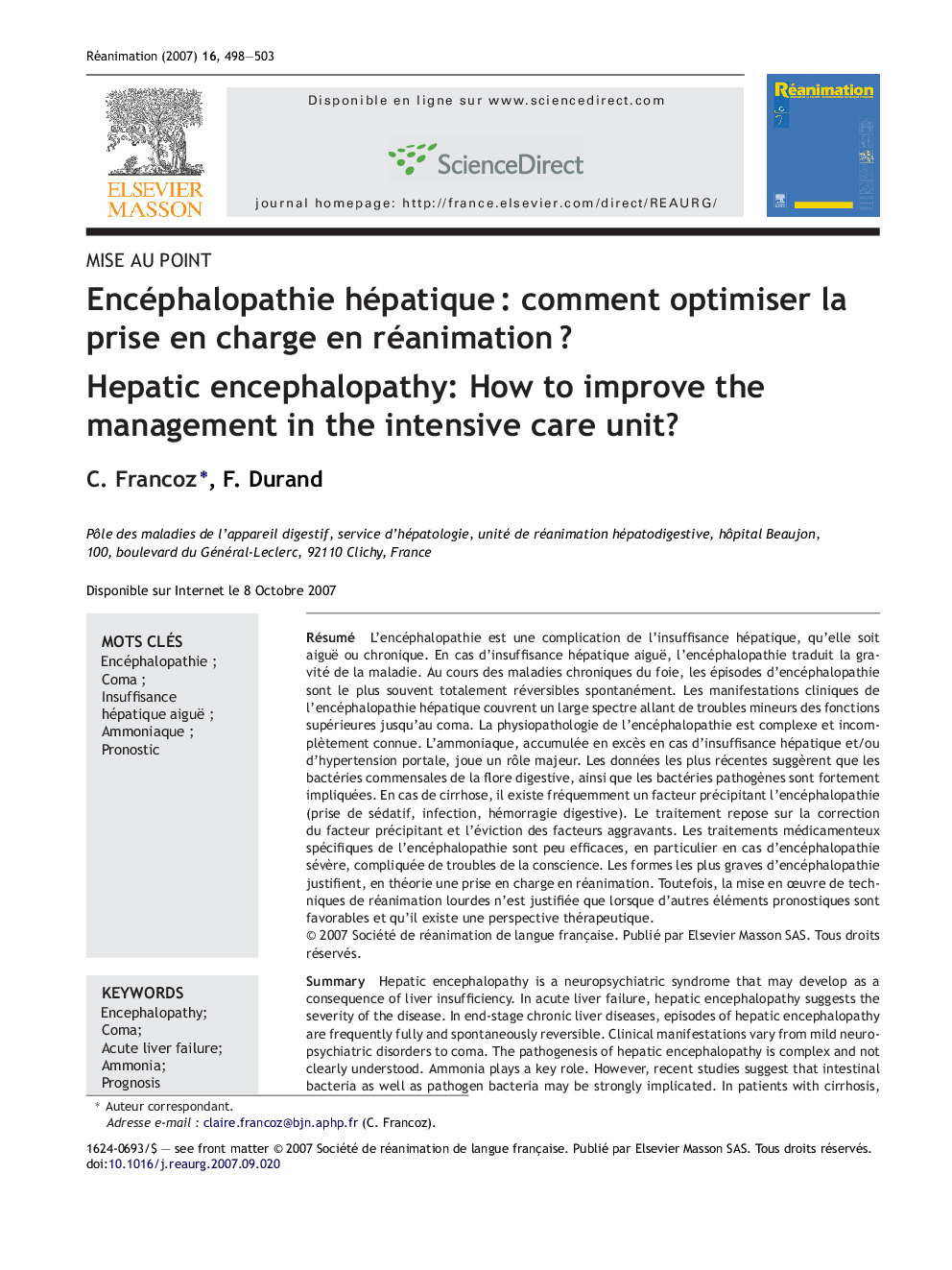| Article ID | Journal | Published Year | Pages | File Type |
|---|---|---|---|---|
| 2612274 | Réanimation | 2007 | 6 Pages |
Abstract
Hepatic encephalopathy is a neuropsychiatric syndrome that may develop as a consequence of liver insufficiency. In acute liver failure, hepatic encephalopathy suggests the severity of the disease. In end-stage chronic liver diseases, episodes of hepatic encephalopathy are frequently fully and spontaneously reversible. Clinical manifestations vary from mild neuropsychiatric disorders to coma. The pathogenesis of hepatic encephalopathy is complex and not clearly understood. Ammonia plays a key role. However, recent studies suggest that intestinal bacteria as well as pathogen bacteria may be strongly implicated. In patients with cirrhosis, precipitating factors of encephalopathy are constant, including sedative agent, infection as well as gastrointestinal bleeding. Management is based on the eviction and treatment of the precipitating factors. Specific medical therapies of encephalopathy remain limited, especially in severe encephalopathies with altered consciousness. Coma theoretically justifies patient admission to intensive care unit. Prognosis of liver disease remains however the main limitation in this strategy.
Keywords
Related Topics
Health Sciences
Medicine and Dentistry
Emergency Medicine
Authors
C. Francoz, F. Durand,
